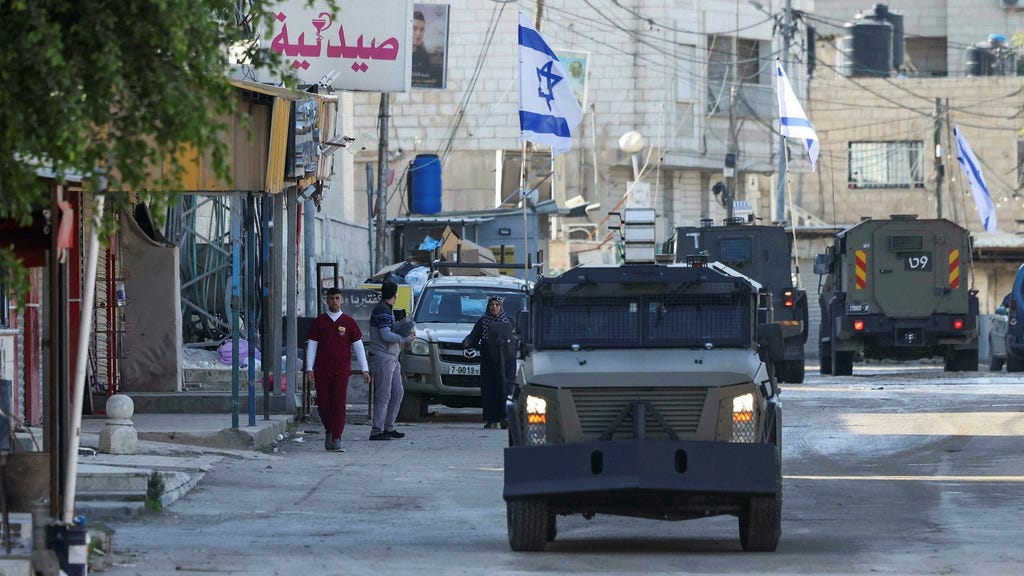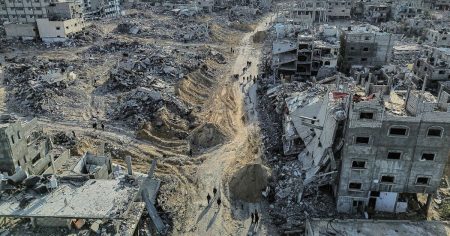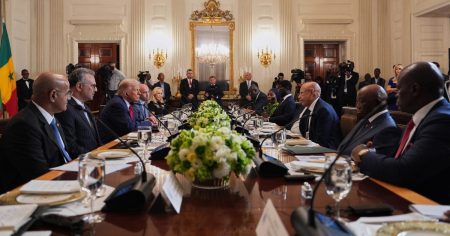The fragile peace in Gaza stands in stark contrast to the escalating violence in the West Bank, where Israeli forces launched a major offensive in the city of Jenin. Palestinian authorities report at least seven fatalities and 35 injuries resulting from the assault, which involved both ground troops and airstrikes. The sudden and overwhelming nature of the attack was described by Jenin’s mayor, Kamal Abu al-Rub, who recounted the swift arrival of attack helicopters and military vehicles. This operation, dubbed ”Iron Wall,” signifies a significant escalation in the ongoing conflict and raises concerns about further instability in the region.
Israeli Prime Minister Benjamin Netanyahu justified the operation as a necessary measure to eradicate terrorism, linking it to a broader struggle against Iranian influence. He asserted Israel’s resolve to combat what he perceives as Iranian-backed threats across multiple fronts, including Gaza, Lebanon, Syria, Yemen, and the West Bank, which he referred to using the biblical terms Judea and Samaria. This rhetoric frames the operation within a larger geopolitical context, portraying Israel as defending itself against a regional network of adversaries. The expected duration of the operation, spanning several days and involving a substantial deployment of troops, underscores the seriousness of the Israeli response.
The timing of the Israeli operation is noteworthy, occurring just a day after the reversal of sanctions imposed by the previous US administration on Israeli settlers in the West Bank. This decision, taken by former President Donald Trump, removed a layer of accountability for settler violence and arguably emboldened further actions. The international community largely considers Israeli settlements in the occupied territories to be illegal, and their presence remains a major point of contention in the Israeli-Palestinian conflict. The removal of sanctions potentially signals a shift in US policy towards greater tolerance of settlement activity.
The escalating violence in the West Bank follows a pattern of increased tensions since the Gaza war over 15 months prior. Since the October 7 attacks, more than 800 Palestinians have been killed in the West Bank, according to local authorities. This surge in casualties highlights the deteriorating security situation and the human cost of the ongoing conflict. The Israeli offensive in Jenin risks exacerbating the cycle of violence and further destabilizing the region. Hamas’s call for Palestinians in the West Bank to escalate the conflict against Israeli forces adds another layer of complexity to the situation, potentially triggering a wider confrontation.
The Israeli operation in Jenin represents a significant escalation of the conflict in the West Bank. The substantial force employed, combined with the stated objective of eradicating terrorism, suggests a long-term strategy aimed at asserting Israeli control and suppressing Palestinian resistance. The timing of the operation, following the reversal of sanctions on Israeli settlers, raises concerns about the potential for further violence and expansion of settlements. The international community’s condemnation of the settlements and the ongoing violence underscores the need for a renewed effort to find a peaceful resolution.
The escalating violence and loss of life in the West Bank highlight the urgent need for a de-escalation of the conflict and a resumption of meaningful dialogue between Israelis and Palestinians. The international community must play a more active role in mediating a solution that addresses the root causes of the conflict, including the status of Jerusalem, the future of the settlements, and the rights of Palestinian refugees. Without a concerted effort to address these issues, the cycle of violence is likely to continue, with devastating consequences for both Israelis and Palestinians.














